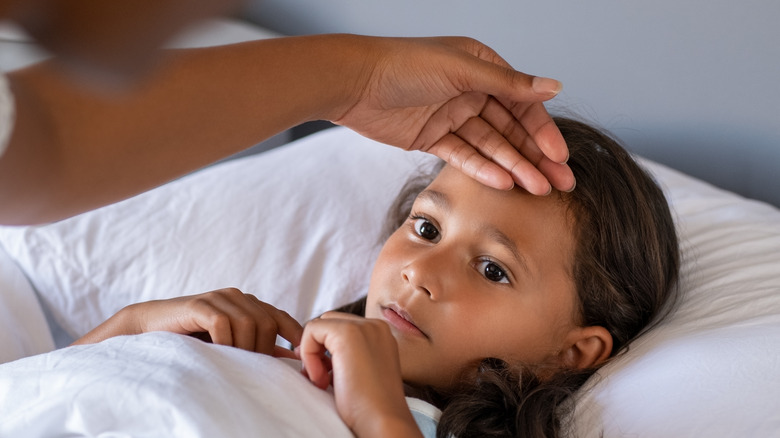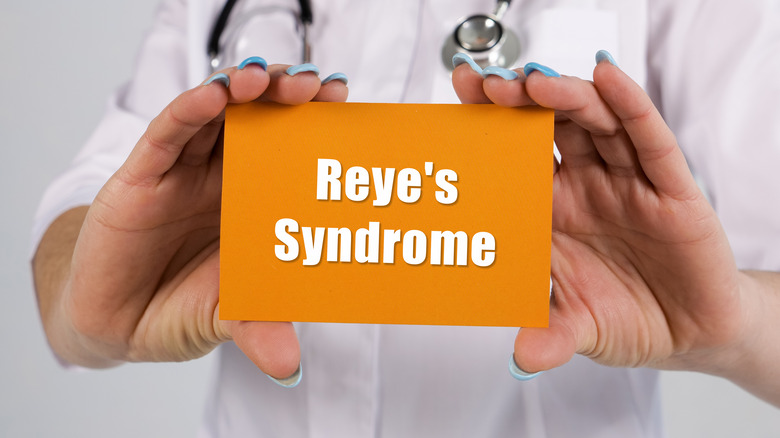This Is Why You Shouldn't Give Aspirin To Your Children
Let's be real, kids get sick a lot. In fact, children below school age tend to get 7-8 colds per year, and this average decreases only slightly to 5-6 colds per year among children who are in school. For some children, these colds are often accompanied by high fevers, according to Comanche County Memorial Hospital.
Of course, nobody likes to see their child sick, and a parent's first inclination is typically to help them feel better as soon as possible. Medication is an easy and effective way to do just that. Since aspirin can be effective for us when we get sick, it may be tempting to offer some of it to our sick children, too. However, this generally isn't a good idea. With very few exceptions, the American Academy of Family Physicians (AAFP) advises against aspirin for anyone younger than 19. This is especially true for kids suffering chickenpox, flu, and cold symptoms, but Helgemo & Liou Pediatrics notes that most pediatricians no longer use aspirin for fevers caused by any illness.
Aspirin is associated with Reye's syndrome in kids and teens
For adults, aspirin is often safer than other nonsteroidal anti-inflammatory drugs (NSAIDs) because it does not increase a person's risk of strokes and heart attacks (per the U.S. Food and Drug Administration), but when it comes to your children, you're much better off picking another NSAID. The AAFP warns that aspirin use in children and teens has been linked with a serious condition called Reye's syndrome.
According to the Mayo Clinic, a child or teenager with Reye's syndrome experiences a drop in blood sugar. They may also experience swelling, and if this happens in the brain, it can lead to seizures, convulsions, and coma. The condition can also lead to permanent brain damage and can even be fatal if left untreated.
As you search for a medication to combat your child's fever, the Mayo Clinic recommends sticking to acetaminophen (found in Tylenol and some cough and cold medicines) or, if your child is at least 6 months of age, ibuprofen (which can be found in Advil and Motrin). According to the AAFP, these medicines aren't associated with Reye's syndrome.


